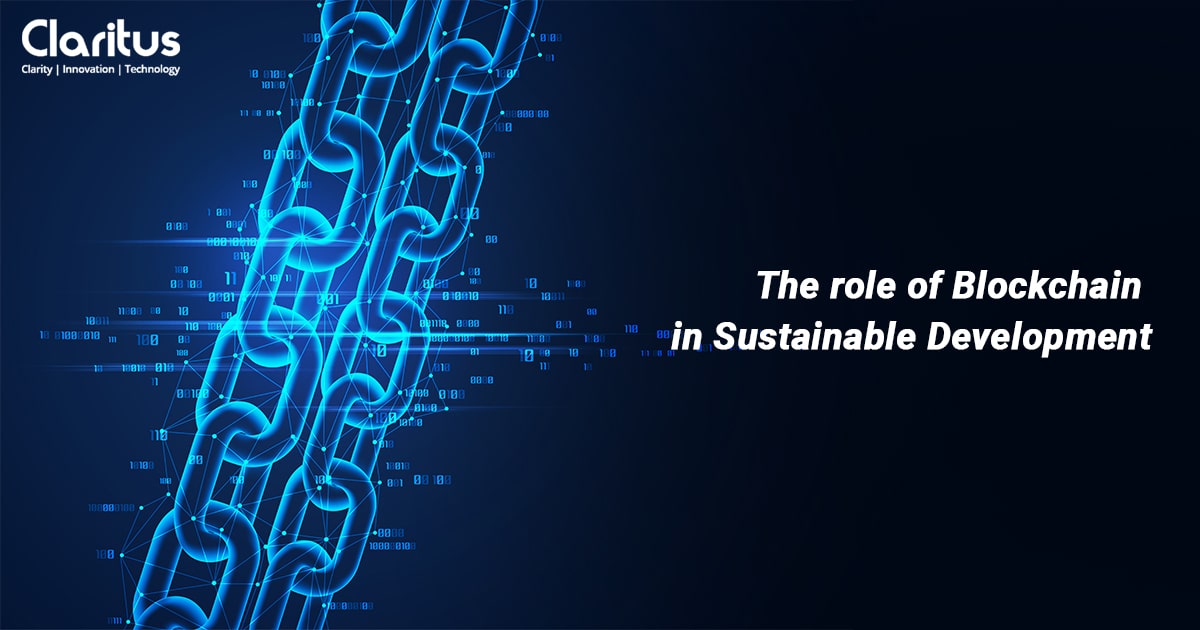The role of Blockchain in Sustainable Development
The Bruntland commission report in 1987 defined Sustainable Development as “development that meets the needs of the present without compromising the ability of future generations to meet their own needs.”
Very often, one particular need drives development without fully taking into consideration its future implications.
This has caused widespread harm and devastation, from irresponsible banking which gives rise to immense financial disaster, to our reliance on fossil fuel centric energy resources which results into changes in climate and global warming.
Corrective action has become absolutely necessary, because the more we follow this path of unsustainable development, the outcome is likely to be more vicious and ruthless.
However, Sustainable development is also about a robust, healthy and decent society which translates into encountering the various requirements of the masses in the current and future communities, nurturing personal well-being, collective togetherness and social inclusion.
Sustainable development can also mean flourishing and thriving in such a manner that the utilized resources get restored over a period of time and keep on existing for others.
Use of recycled materials while building is an illustration of sustainable development.
Role of Blockchain:
1. Education
Digital records can retained by educational institutions with the help of blockchain. The records may include student identity, attendance, tracking the stage of assignment, transcripts, badges and infrastructure security etc. Deploying blockchain in the teaching process will grossly improve the learning experience of the students.
2. Health
Modern healthcare system is created on the support of electronic medical records. Patient records tend to become lengthier and more complicated in course of time. Accessing these records may be difficult, since they are stored in a different way by each hospital or medical unit. Integrating blockchain with the storing process would not only offer physicians and patients with easy access to the data but also bring about more efficiency and data security.
3. Climate
An important purpose gets served by employing blockchain on top-priority actions about upgrading and refining the transparency and accountability of policies to restrict global fossil fuel use and facilitate decarbonization. Hyperledger, a segment of the Linux Foundation is suppose to look into deploying the idea of blockchain aiding to manage the climate goals mentioned in Paris Agreement.
4. Affordable Energy
Blockchain dependent smart grid sustainable energy markets encompass systems that facilitate cost effective micro-transactions, steer clear of central intermediaries and foster equality and reliability in between the participating and concerned agents.
5. Production Patterns
It’s convenient to keep track of Production patterns with the help of techniques that trace the supply chain.
6. Industry
Blockchain provides an advanced technical feature, by way of making end-to-end transparency in global supply chains a reality. Now, it’s possible to share business data across a trusted network, among different stakeholders. The ultimate goal is to pull off a Sustainable Supply Chain Management to cut down the environmental and social impacts in global supply chains. Blockchain actually makes it possible to retrieve discrete data and specifics about “What, when, where and how” of a merchandize in a supply chain. By streamlining the system of global logistics with regard to ocean freight and maritime transport and making it more efficient and secure, it benefits the shipping industry immensely.
Wrap-up
Sustainability is intertwine with the kind of consequences the current deeds, behavior and conduct have on the future.
The current actions are of multiple forms including, use of natural resources, waste management activities, pollution management, a pandemic flare-up or even the bond amongst regulators.
If natural reserves dry up, they would no more be available. Therefore, the efficient management and utilization of social, economic and environmental assets is the fundamental concern for long term sustainability.

